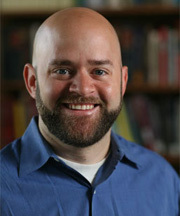
O. Carter Snead, associate professor of law in the Notre Dame Law School, has been appointed to the United Nations Education, Scientific and Culture Organization (UNESCO)s International Committee on Bioethics (IBC) and is in Paris this week serving in his new role.
The IBC is a 36-member body of independent experts appointed for four-year terms by the director-general of UNESCO. The IBC members work together to produce opinions, recommendations and proposals on the ethical challenges linked to scientific and technological advances, which are submitted to the director-general for consideration by UNESCOs representative bodies and transmission to member states. The IBC is the only forum within the U.N. system dedicated to ethical reflection on developments in the life sciences.
Two main topics will be discussed during the meetings this week: the principle of social responsibility and health, as set forth in the Universal Declaration on Bioethics and Human Rights (2005), for which Snead led the U.S. delegation in negotiations that culminated in this instrument; and the issue of human cloning and international governance.
At the request of UNESCOs director-general, an IBC working group has been examining cloning to determine whether the latest scientific, ethical, social, political and legal advances warrant a new international initiative on human cloning. The session will provide the opportunity to assess the situation and hear different viewpoints.
A member of the Notre Dame faculty since 2005, Sneads research focuses on the intersection of law and bioethics. His scholarship explores the possibility, mechanisms and wisdom of the governance of science, medicine and biotechnology according to ethical principals.
Snead is the former general counsel for the Presidents Council on Bioethics, a White House advisory committee, and principal author of the councils 2004 report on the regulation of new biotechnologies affecting assisted reproduction, human embryo research and genetics.
In 2007, Snead was appointed, along with Edmund Pellegrino, chair of the Presidents Council on Bioethics, to be the permanent observer for the U.S. government at the Council of Europes Steering Committee on Bioethics (CDBI). In that capacity, he assists the CDBI in its efforts to elaborate international instruments and standards for the ethical governance of science and medicine.
More information on this weeks IBC meeting is available on the Web at http://portal.unesco.org/shs/en/ev.php-URL_ID=12473&URL_DO=DO_TOPIC&URL_SECTION=201.html
_ Contact: Carter Snead,_ " snead.1@nd.edu ":mailto:snead.1@nd.edu
TopicID: 30167